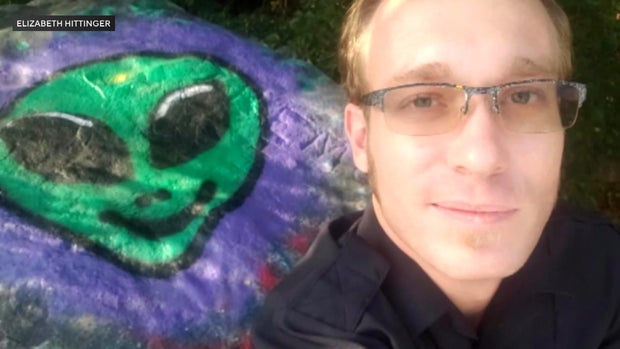Pennsylvania
Pennsylvania Senate passes bill opponents worry targets books about LGBTQ+ and marginalized people

HARRISBURG, Pa. (AP) — A bill passed the GOP-controlled state Senate to require Pennsylvania parents to opt in their children to access book deemed sexually explicit after more than an hour of passionate floor debate Tuesday.
The bill passed 29-21, with objection from most Democrats. It now goes onto the Democrat-controlled House, where it faces an uncertain future. The bill passed the chamber, along with another that regulated how teachers communicate with parents about curricula, and drew opposition from the state’s largest teachers union.
The move is part of a larger nationwide effort of expanding parental oversight of schools, which saw a swell of energy in Florida last year. In the months since, other state Legislatures have taken up similar legislation that opponents say specifically targets LGBTQ+ and students of color.
In Pennsylvania, the bill’s sponsor, Republican Sen. Ryan Aument of Lancaster County, said the bill was a “very measured approach to addressing what was rapidly becoming a contentious national issue.” He rejected that it was an attempt to ban books, attack the LGBTQ+ community or censor anyone.
One Democrat, Sen. Lisa Boscola of Northampton County, agreed, saying policies like this draw heated, vocal support on both sides of the issue.
“It’s tearing our communities apart,” she said. “That’s why this General Assembly needs to lead. It needs to set forth a statewide policy that balances those radically different viewpoints of parents on both sides of this issue.”
Under the Pennsylvania measure, a similar version of which also passed the chamber last year, districts would identify and list books that contain any sexual material — used in classroom instruction or available in the library — and require parents sign an opt-in form to grant permission for their children to access some books.
It defines sexually explicit as showing “acts of masturbation, sexual intercourse, sexual bestiality or physical contact with a person’s clothed or unclothed genitals, pubic area, buttocks, or, if the person is a female, breast.”
The measure would also prohibit depictions of nudity in books for students in kindergarten through grade eight.
Opponents denied that the legislation wouldn’t ultimately censor voices, and said books available in school are vetted by educators. They said parents already have the ability to control what their children read.
“Exploring human relationships, sex and love are some of the most challenging and rewarding obstacles that we will face in life,” said Democratic Sen. Amanda Cappelletti, of Montgomery County. “And we need the right education and materials available to ensure people can explore those spaces safely and with the right knowledge to be able to interact with the world around them compassionately.”
Another bill — a similar version of which was vetoed by former Gov. Tom Wolf last year — that considered what it calls “classroom transparency” also passed the chamber, 28-22. That measure would require schools to post online the title or link for every textbook used, syllabi and course summaries and the state academic standards for the course.
Democrats said schools already allow for parents to review curriculum, and the legislation would be needlessly burdensome on districts.
The bill’s sponsor, Republican Sen. Doug Mastriano of Franklin County, said there was “nothing nefarious” about the bill’s intent.
Both measures were opposed by the Pennsylvania State Education Association.
__
Brooke Schultz is a corps member for the Associated Press/Report for America Statehouse News Initiative. Report for America is a nonprofit national service program that places journalists in local newsrooms to report on undercovered issues.

Pennsylvania
UPenn anti-Israel protesters arrested after attempt to occupy building, police say

Several anti-Israel agitators were arrested at the University of Pennsylvania on Friday night after hundreds of protesters descended into a campus building and attempted to occupy it.
Police confirmed to Fox News Digital that there were multiple arrests at the university’s Fisher Bennett Hall on Friday night. It is unknown at this time how many were arrested.
The UPenn Police Department announced in a community notice that a “large disorderly crowd” began gathering at 8 p.m. on Friday, and moved into Fisher Bennett Hall on the university’s campus and attempted to occupy it.
Law enforcement advised students to “avoid the immediate area.”
BLACK STUDENT ERUPTS ON ANTI-ISRAEL ‘WHITE LIBS’ FOR BLOCKING PATH ON CAMPUS: ‘COSPLAYING AS THE OPPRESSED’
Pro-Palestinian protestors stage an encampment at the University of Pennsylvania in Philadelphia, Pennsylvania, United States April 25, 2024. (Getty Images)
Campus police, along with assistance from the Philadelphia Police Department, escorted the protesters from the campus building.
POLICE ON UC IRVINE CAMPUS AFTER ANTI-ISRAEL AGITATORS SWARM BUILDINGS; STUDENTS TOLD TO ‘LEAVE AREA’
In an 11 p.m. update, authorities said that the protesters had dispersed.

An anti-Israel encampment is removed Friday at the University of Pennsylvania campus in Philadelphia. (WTXF)
The occupation came one week after police dismantled an encampment that had taken over part of the Ivy League’s campus for two weeks.
CLICK TO GET THE FOX NEWS APP
In a statement, members of the Penn Gaza Solidarity Encampment accused the University of Penn administration of not negotiating with them in good faith over “Penn’s investment with Israel.”
Pennsylvania
Pennsylvania man accused of murdering roommate, scattering body parts in 3 locations

SLATINGTON, Pa. (CBS) — A Pennsylvania man was arrested after state police said they found his roommate’s body scattered in three locations, including a trail, a cemetery and a quarry.
Police said 37-year-old David Hittinger’s dismembered body was discovered in Slatington, just 15 miles north of Allentown, Pennsylvania.
The concern for Hittinger began Monday when a friend called state police.
“It was unusual that they had not heard from him in that period of time, [they] expected to hear from him.” Lehigh County District Attorney Gavin Holihan said. “It was his birthday.”
That call led to a search the following day of 33-year-old Joshua Moser’s home, where investigators said Hittinger recently moved in as a roommate.
“As a result of that search warrant,” Holihan said. “Blood, hair, and other evidence were found in the basement of that home.”
Holihan said, on Wednesday, investigators found more evidence in the home.
“Items that were recovered included a saw, a boxcutter, more evidence of blood, including bloody clothing,” Holihan said.
Authorities found Moser in Monroe County where he was taken into custody on a parole violation. He pleaded guilty in a fatal DUI crash in 2016.
“Later that evening, the discovery was made at the Fairview Cemetery in Slatington,” Holihan said. “That discovery was physical evidence. That physical evidence included body parts, dismembered body parts of David Hittinger.”
The criminal complaint says Moser has admitted to the crime. Investigators did not release a motive.
Pennsylvania
Pa.’s judges must reveal the perks they accept, but the public won’t find those disclosures online

This story originally appeared on Spotlight PA.
Every year, thousands of officials in state government must fill out reports by May 1 that disclose their sources of income, creditors, and business interests, as well as any gifts, hospitality, or other perks they accepted.
Those reports, called statements of financial interest, are then made publicly searchable and available online. The forms are a key way for the public to gain a deeper understanding of their elected officials’ financial ties, as well as discover which outside groups may be trying to influence public policy decisions.
Pennsylvania’s judges, however, play by somewhat different rules.
Though they too must file annual disclosures, theirs aren’t posted online. The public must ask for copies — provided they know where to go for that information.
Some good-government advocates say this creates an unnecessary inconvenience for anyone trying to quickly access fundamental information about Pennsylvania’s judiciary, a critical branch of government with great power over civil and criminal matters.
“Judges are public officials, and there are many special interests trying to influence the courts,” said Michael Pollack, executive director of March On Harrisburg, a group that pushes for transparency in government, as well as a ban on gifts to elected officials.
“When you erect barriers, you are denying access,” he said.
Stacey Witalec, spokesperson for the Administrative Office of Pennsylvania Courts, did not answer a question about why the courts do not post financial interest statements for judges online. “While not posted on our website, the Court makes the statements of financial interest available upon request,” she said in an email.
She did not elaborate.
Statements of financial interest are at their core a tool to increase public trust in government. But they also can act as deterrents, the thinking being that disclosure makes it less likely a public official will engage in any conflicts of interest. The importance of a robust reporting system was amplified following media investigations last year that revealed several U.S. Supreme Court justices had not disclosed certain gifts and travel.
-

 Politics1 week ago
Politics1 week agoRFK Jr said a worm ate part of his brain and died in his head
-

 World1 week ago
World1 week agoPentagon chief confirms US pause on weapons shipment to Israel
-

 World1 week ago
World1 week agoConvicted MEP's expense claims must be published: EU court
-

 News1 week ago
News1 week agoStudents and civil rights groups blast police response to campus protests
-

 Politics1 week ago
Politics1 week agoCalifornia Gov Gavin Newsom roasted over video promoting state's ‘record’ tourism: ‘Smoke and mirrors’
-

 Politics1 week ago
Politics1 week agoOhio AG defends letter warning 'woke' masked anti-Israel protesters they face prison time: 'We have a society'
-

 News1 week ago
News1 week agoNine Things We Learned From TikTok’s Lawsuit Against The US Government
-

 Politics1 week ago
Politics1 week agoBiden’s decision to pull Israel weapons shipment kept quiet until after Holocaust remembrance address: report




















